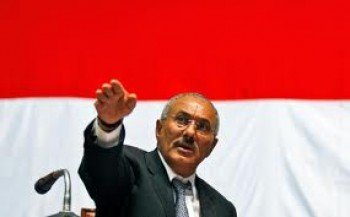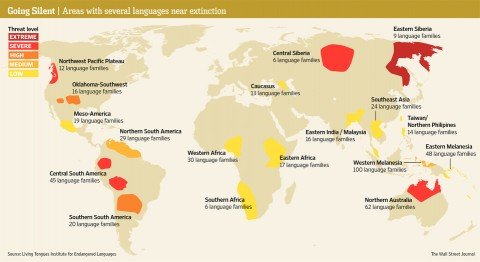by Seth Kaplan | Feb 27, 2012 | Africa, Conflict and security, Cooperation and coherence

In the aftermath of the conference in London on Somalia, I offer a wrap-up of the best articles and books to read on the country.
In the past week, there has been a number of excellent pieces on what the international community has done wrong in the past, and how it might do better going forward.
In general, they all suggest that the focus should be on what is working—in places such as Somaliland, Puntland, and Galmudug—rather than on any foreign blueprint for success.
Past initiatives have repeatedly attempted to impose a centralized bureaucratic governing structure on the country, a structure ill-suited to Somali society. Such efforts have never been effective and have only aggravated domestic tensions. (more…)
by Seth Kaplan | Feb 23, 2012 | Conflict and security, Middle East and North Africa

“I have 33 years of experience in power and I know the difficulties, I know the negatives and positives. The one who clings to power is mad.” – Former President Ali Abdullah Saleh of Yemen
March 11, 2011: Yemen’s Leader Proposes Shifting Some Powers
March 25, 2011: President Saleh of Yemen Is in Talks on Exit
April 6, 2011: Saleh determined to set exit terms
April 24, 2011: Yemen’s president agrees to resign
May 19, 2011: Yemeni President to Sign Agreement to Leave Power
May 21, 2011: Saleh Calls for Early Elections in Yemen
June 6, 2011: Protesters in Yemen Rejoice as Leader Goes to Saudi Arabia
June 10, 2011: Saleh’s relatives retain much power in Yemen
August 10, 2011: Yemen’s Saleh says will leave power in coming days
September 13, 2011: Yemeni Leader Says Deputy Can Pursue Deal to Transfer Power
September 24, 2011: Yemen’s President Saleh Abruptly Returns From Saudi Arabia
September 26, 2011: Saleh Confirms Support for Yemen Transfer of Power
September 30, 2011: Saleh says he won’t resign until rivals are out
October 9, 2011: Yemen’s Leader Says He’ll ‘Reject Power’; Foes Are Skeptical
October 10, 2011: Yemen president wants to leave power
November 14, 2011: Yemen’s Ali Abdullah Saleh says he’ll step down in 90 days — maybe
November 23, 2011: Yemen Leader, Saleh, Agrees to End 3-Decade Rule
November 28, 2011: Yemen’s President Orders Amnesty Despite Ceded Power
February 20, 2012: Saleh Cedes Authority in Yemen, but Hopes to Retain Influence
by Seth Kaplan | Feb 22, 2012 | Middle East and North Africa
Aleppo’s famed souk is arguably the most vibrant and interesting in the whole Middle East.

What differentiates it from other great markets in the region (such as my other favorites in Sana’a in Yemen and Yadz in Iran) is the immense diversity of the local population, the fact that it remains the main center of local commerce, and the almost complete lack of tourists. If an Aleppine housewife needs some braid for her curtains, a taxi driver needs a new seat cover, or the school kids need satchels, it’s to the souq that they all come. Although majority Sunni, the city has the second largest Christian population in the Middle East, and includes a dozen different congregations. There are also significant number of Assyrians, Kurds, Circassians, Turkmens, and wide range of different Arabs. There used to be a substantial Jewish community too. (more…)
by David Steven | Feb 22, 2012 | Climate and resource scarcity, North America
Newt Gingrich has just released a half-hour lecture on US energy policy.
[youtube]http://www.youtube.com/watch?v=vOImnCrKPZ8[/youtube]
To say, the ex-speaker is bullish on US domestic energy prospects is an understatement. He sets four objectives: (i) zero dependence on imported energy from potentially hostile states (Saudi Arabia, Iraq, Iran, Venezuela, etc); (ii) over a million additional high-paid jobs in the energy sector; (iii) a strengthened dollar due to a reduction of energy imports and increase in exports; (iv) gas at $2.50 per gallon.
Newt’s vision is based on massive exploitation of what he believes are more or less unlimited unconventional oil and gas reserves. The US could have three times as much oil as Saudi Arabia, he argues, and gas for 100 years or more. The geopolitical consequences of this bounty will be striking. As President, he would have the Saudis firmly in his sights:
I want to get to a point where we produce so much oil in the United States that no American president will ever again bow to a Saudi King. I thought, frankly, it’s time that we tell the Saudis the truth: We know that they are the largest funders of schools called madrassas, which teach hate. We know that they spend several billion dollars a year exporting a very, very extreme version called Wahhabism, and we know that they are not straight with us.
And up until now, our presidents have been too cautious to say, “Oh gee, I don’t want to offend the Saudis. I don’t want them to do something with their oil supply.”
Well, we have an opportunity now to turn that around. We have an opportunity to build up the American oil supply, the American natural gas supply, so we can then tell the Saudis the truth, so we can deal with them from a position of strength, so we can no longer worry about the Persian Gulf.
And at that point, if, in fact, the Iranians want to do something with the Straits of Hormuz, maybe the Chinese have a problem or the Indians have a problem or the Europeans have a problem. But I am not sure at that point that the Americans will have a problem if we become once again what we were in World War II, the leading producer of oil in the world.
As is often the case, Newt has tapped deep into the Zeitgeist by choosing today to go large on energy. Talk to American policy makers and they have become incredibly bullish about the prospects for the domestic sector (although few, of course, rising to Gingrichian heights of enthusiasm).
Citigroup recently proclaimed the end of Peak Oil, triggering a debate on whether shale gas and tight oil prospects are fundamental game changers or whether they will have a more marginal – although still significant – impact (see Chris Nelder for example). No-one credible I have talked to would disagree that a shift of some kind is afoot.
Newt is also right to see potential geopolitical advantages for the US. American energy demand is fairly stable and its domestic endowment is growing. In contrast, China and India face decades of rapidly increasing consumption of all natural resources. They also still have lots and lots of resource-hungry cities to build. Their transition is going to be much more tricky to handle.
The US also has leadership in key technologies (fracking, enhanced oil recovery, solar, even nuclear) that are increasingly valuable as energy demand grows. And it’s well-placed on food and land (although water is a big problem for some parts of the country).
Characteristically, of course, Gingrich overplays his hand (that’s his shtick). America sitting back while the Gulf implodes? Good luck with that. And market prices for oil – less so for gas – are set globally. Demand overseas will continue to drive the price the American consumer pays for gasoline at home: ‘oil isolationism’ is, and will remain, a fantasy.
And, of course, climate change does not get a mention in Gingrich’s current world view (although it used to), even though new fossil fuel discoveries are putting huge amounts of new carbon in play. That is not a problem that can be ignored ad infinitum.
I’m expecting Newt’s energy fervour to be much mocked, but don’t bet against him getting some momentum too. And the mood could spread. We might see quite a lot more bullish talk on energy in the American presidential debate.
Update: Just reading the transcript, one misses some of the glory of Newt’s delivery, which is Pinteresque at times: “Under President Obama, because he is so anti?American [pause] energy, we have actually had a 40 percent reduction in development of oil offshore.”
Update II: The Onion weighs in:
As Newt Gingrich continues to cede ground to Rick Santorum, the former House speaker’s campaign team has responded by advising him to stay focused on the belligerent, mean-spirited message that has long been the hallmark of his presidential run, sources confirmed Monday.
“Newt’s rhetoric can become abstract and idiosyncratic at times, and we have to gently remind him that he just needs to be himself, to be the Newt people are familiar with—the Newt devoid of any discernible scruple beyond his own insatiable instinct for self-promotion,” campaign director Michael Krull said Friday, explaining that whatever lies at Gingrich’s cold, depraved core is what will make or break him with voters. “Every time he veers off course and talks passionately about about outer space or how the United States has to stop spending beyond its means, I tell him, ‘Look, your greatest asset is being a remorseless asshole.”




